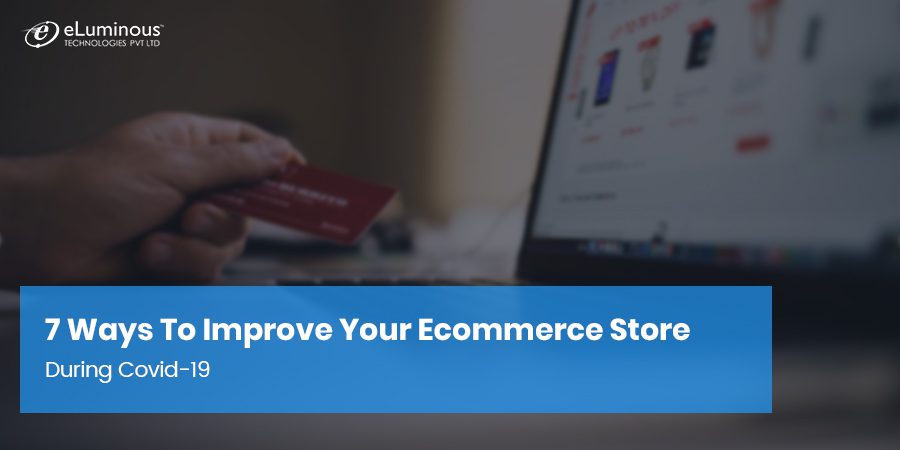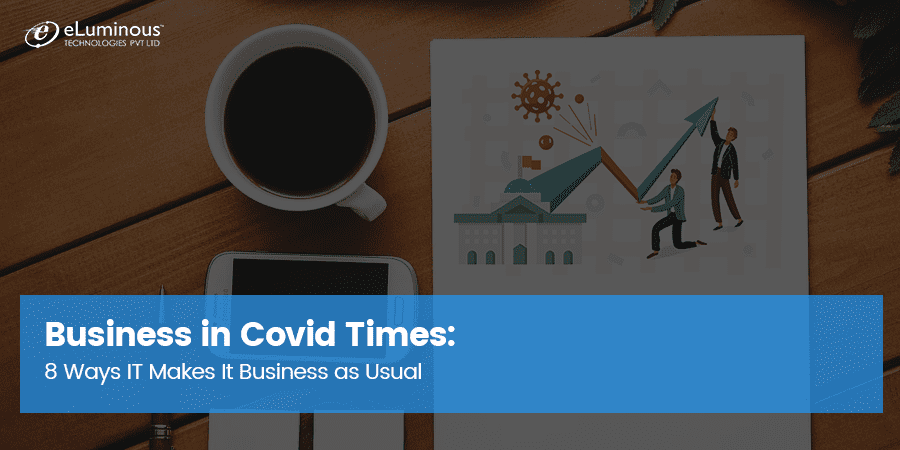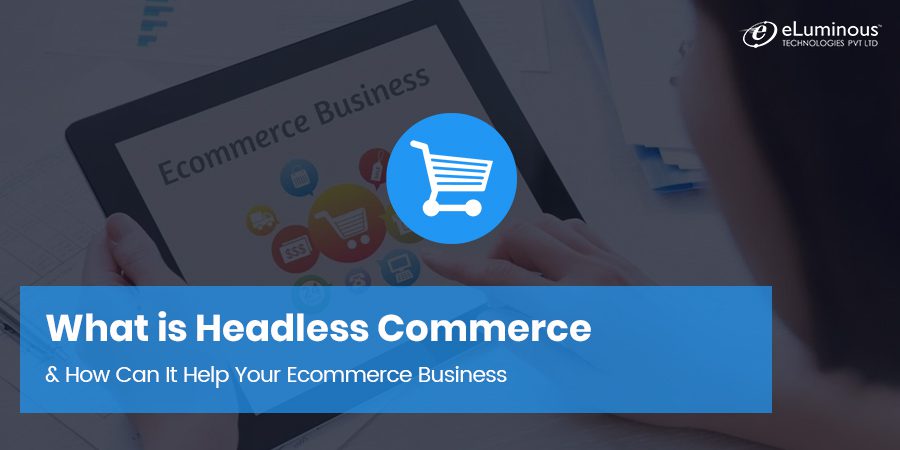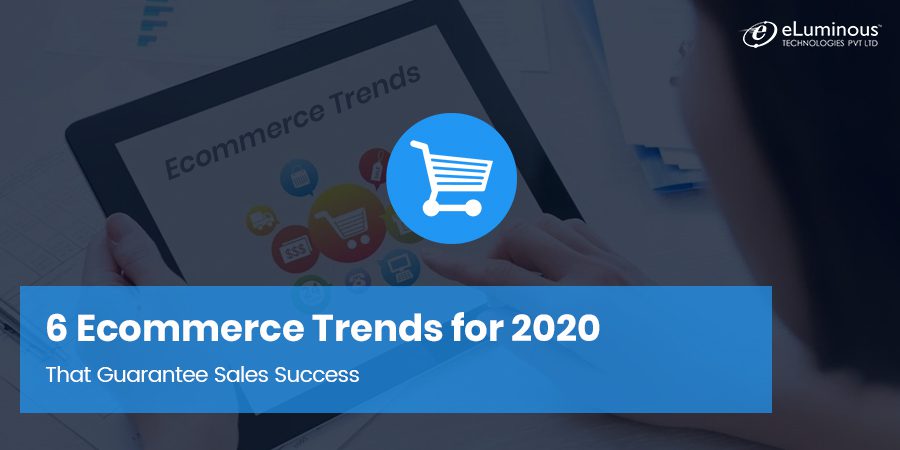Covid-19 has dealt a body-blow to businesses across sectors. However, it’s safe to say retail has been hit particularly hard and will take a fair amount of time to regain its pre-pandemic momentum. But there’s a silver lining to every dark cloud and in this case, it’s eCommerce. If you are an eCommerce seller, this is a great time to double-down on your expansion and improvement plans.
Allow us to explain why.
While physical retail suffered, eCommerce has been on an upswing during Covid-19. As per CC Insight, American and Canadian eCommerce orders increased by 129% year-on-year as of April 21. The figure for all online retail orders for the same period stood at an impressive 146%. The role of eCommerce during Covid-19 is also being looked at a policy level, as this note from the WTO (World Trade Organization) shows.
In effect, Covid-19 has accelerated the already growing share of online in total retail sales. And while online sales are currently distributed unevenly across categories (grocery and medicines are doing better than others), in addition to ebbing and flowing as per Covid-19 measures by local government bodies, they are expected to stabilize for the better in the coming months.
How Your Ecommerce Store Can Gain from this Windfall?
Although a difficult time from a working capital and cash flow perspective, this crisis also offers a host of opportunities. And while several are not Covid-19 specific, it’s likely that you couldn’t make the most of them in normal times due to the pulls and pressures of running an online business.
From revaluating your marketing campaign to upgrading your online store’s infrastructure and working with eCommerce developers to improve your online store, here’s a list of improvement areas for your eCommerce store during this tumultuous period.
Things You Can Do to Improve Your Online Store During Covid-19
Website Speed Optimization
Speed is central to success in eCommerce. The faster your store’s website loads, greater are its chances of converting a visitor and netting a sale. Statistical proof for this comes from Google itself – most visitors wait no more than 3-4 seconds for your website to load fully.
You can improve the loading speed by optimizing your site’s webpages. Start by identifying issues that make your webpages laggy. Usual suspects include,
|
|
Website Maintenance
Website maintenance refers to any changes or feature additions that improve your eCommerce store’s user experience, conversion rate, and overall sales. For instance, you can add a popular eCommerce functionality such as AI-enabled chatbots or multi-language support to address your overseas audience.
Other smaller things that can have a major impact on your website’s performance include fixing issues and critical bugs, trying out useful 3rd party extensions, creating a personalized experience for your buyers, updating your inventory, etc.
Online Store Development
A good real-world analogy to online store development is laying a road when the traffic is low or zero – it’s just an easier time to do it. If you already run an eCommerce venture, use this time to add new features or services to your store.
But if your online presence is restricted to just social media promotions, now is a great time to go virtual by building an online storefront for your business. Doing so will give you more flexibility and make it easier to reach a wider audience.
If you’re starting anew, you can choose from open-source (i.e. free to use) custom eCommerce solutions such as Magento, OpenCart, PrestaShop, and WooCommerce. Your other option is to use SaaS eCommerce platforms such as BigCommerce and Shopify, where you pay a subscription fee to build, host, and operate your online store.
Online Store Upgrade
Upgrading the store when the traffic is low or uncertain helps you add the latest features and improvements while keeping disruptions to the bare minimum. For instance, you can hire dedicated developer teams to help upgrade your eCommerce platform to the latest version (Magento 1 -> Magento 2, PrestaShop 1.6 or older -> PrestaShop 1.7, and so on) and enjoy a range of benefits such as,
|
|
To wit, Graham & Green, a British furniture company, reported a jump of 96.46% in their conversion rate and a 43.5% improvement in their website loading time by moving from Magento 1 to Magento 2.
Website SEO Audit
An SEO audit tells you about the state of your eCommerce store’s online presence and SERP (Search Engine Results Page) visibility. There are several tools such as SEMRush and Ahrefs that you can use to evaluate your website’s online marketing efforts through proven performance metrics. If you’re the hands-on type, Neil Patel’s guide to carrying out a technical SEO audit of your website in less than an hour is a great start.
A full website SEO audit might throw up a number of issues that can impact your online store’s search engine performance. These include,
|
|
|
|
|
|
By identifying and addressing such issues, you will start getting the kind of traffic your website rightfully deserves.
Focus on Paid Marketing
This might sound counter-intuitive but increasing your paid marketing spends now may just be a great idea. Here’s why; Google and Facebook prices have crumbled for premium ad inventory and social media advertising owing to Covid-19. That’s because several big-ticket digital marketing spenders are cutting back on their PPC budgets as they realign their marketing strategy.
This presents you the perfect opportunity to run targeted paid campaigns via Google, Facebook, and other channels where your audience exists. Doing so will help you to not only reach a larger audience by advertising at scale but also lower your cost per lead dramatically.
Initiate Content Marketing Strategies
A survey by Global Web Index, a tech-focused market research firm, reported a significant increase in content consumption across different age groups due to Covid-19. People are consuming more video, audio, and text content than ever before as they find themselves cooped up at home for extended periods.
Ecommerce sellers can leverage this by designing a content strategy and creating valuable content. And while creating quality videos is a lot cheaper now, it can take a while before you master the format. An easier and cheaper alternative would be to invest in more textual content (blog posts, guest blog posts, social media promotions, microblogging, email newsletters, eBooks) for creating awareness about your products and building your brand.
Over to You
For retailers, surviving and thriving during Covid-19 call for timely and appropriate measures. If you derived most of your sales offline, your best bet for growth now is to invest in custom eCommerce solutions. The behavioral changes caused by the pandemic are unlikely to go away anytime soon as people will prefer to buy their needs and wants from the comfort and safety of their homes.
But if you already operate an eCommerce venture, now’s a great time to implement one or more of the measures discussed in this post. As an eCommerce website development company for over 15 years, we can vouch for the fact that downturns are the best time to load up on ammo.
If you’d like to know more about these and other things you can do to improve your online store, get in touch with our remote app developer and eCommerce experts now.
If you liked this post, do subscribe to get crisp and informative blog posts delivered straight to your inbox every week. Our posts touch a variety of topics including web and mobile development, data analytics, business intelligence, and eCommerce.
Thank you for reading. How has Covid-19 impacted your eCommerce business? How do you plan to tackle Covid-19 as an eCommerce seller? Do let us know your thoughts in the comments below.
Digital Marketing Manager
Responsible for developing and managing web presence, Sarah has been associated with eLuminous Technologies for 7+ years. Strategic and innovative with a passion for Content Marketing and enhancing brand awareness. Administered all business marketing operations and advertisement campaigns that eventually increased web traffic. She works under the motto “Think like a Publisher, not a Marketer.”



